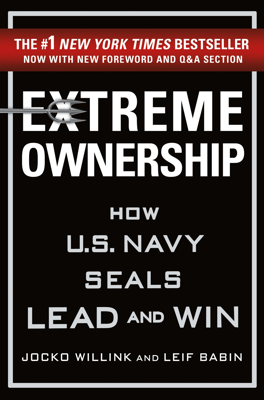Check the Ego
Introduction: Combat Scenario in Ramadi
The chapter opens with a vivid description of a combat scenario in Ramadi, Iraq, where Jocko Willink and his SEAL team respond to an enemy attack on their camp. Amidst intense gunfire and retaliation, the SEALs demonstrate effective coordination and combat prowess.
Ramadi: A Harsh Battlefield
Willink emphasizes the extreme violence and challenges faced in Ramadi, considered the most dangerous city in Iraq during that period. Despite their advanced training and superior weaponry, the SEALs are humbled by the conventional U.S. forces' bravery and capabilities, who face daily combat with fewer resources.
The Importance of Unity and Coordination
Upon their arrival in Ramadi, SEAL Team Task Unit Bruiser (TU Bruiser) adopts a collaborative approach. They actively engage with other U.S. Army and Marine units, maintaining professionalism and respect, recognizing the necessity of working together against a common enemy instead of fostering divisions due to ego.
Principle of Checking the Ego
Willink introduces the principle of checking the ego, reinforced by an incident involving a newly arrived special operations unit. The unit’s failure to integrate, due to arrogance and a lack of coordination with existing forces, results in their removal from the operation. This situation underscores the dangers of letting ego interfere with mission objectives.
- Detrimental Effects of Ego: Ego can hinder operational planning, acceptance of advice, and team collaboration.
- The Need for Humility: Successful implementation of Extreme Ownership entails managing personal and team egos by embracing humility, acknowledging mistakes, and prioritizing the overarching mission over individual accolades.
Business Application: Incident in Corporate Operations
Leif Babin narrates an issue faced by Gary, a mid-level manager, whose subordinate bypassed standard procedures, leading to significant financial loss and operational delays. Babin advises him to approach the situation by taking responsibility and addressing the issue without clashing egos to maintain team cohesion and effectiveness.
- Managing Subordinate Egos: Leaders should address issues in a manner that prevents escalation and fosters understanding and cooperation.
- Ego in Leadership: A leader’s ego should not obstruct clarity and objectivity. Instead, leaders should focus on collective mission success and team dynamics.
Conclusion
This chapter establishes the corrosive impact of unchecked ego in both military and business scenarios. It illustrates how ego can undermine teamwork, operational success, and leadership effectiveness. By advocating for a humble approach, Willink emphasizes that the mission’s success and team stability are paramount, thus leaders should always check their egos.
